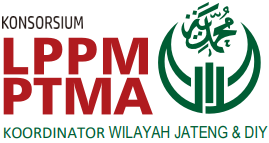
Peer-Review Policy and Process
Description
Author can only make submissions through the URECOL conference. The manuscript may be returned to authors without a scientific assessment if they do not meet all submission requirements, if they are not in the correct format, or cannot be downloaded reliably.
Submissions must represent the original and independent work of the authors. Each new submission is assessed by Scientific Commitee to determine whether it falls within the general remit of URECOL. We will reject a manuscript without review if it contains insufficient content; it exceeds our word limit or is incorrectly formatted; it is poorly presented and unclear.
Manuscripts that pass the initial assessment will be handled by Section Editor (a part of URECOL Scientific Commitee) to oversee the review process for contribution, originality, relevance, and presentation. All manuscripts are subject to peer review and authors can expect a decision, or an explanation for the delay. If a revision is invited, the corresponding author should submit the revised manuscript within 1 weeks. The final decision is taken by Section Editor based on the information gained through the peer-review process.
Once a manuscript passes the initial checks, it will be assigned to independent experts for peer-review. A single-blind review is applied, where authors' identities are known to reviewers. Peer review comments are confidential and will only be disclosed with the express agreement of the reviewer.
Types of decision
Following peer review, the paper is judged not to be acceptable for publication in URECOL and resubmission is not possible.
Revision
The paper requires changes before a final decision can be made. Authors are asked to modify their manuscript in light of comments received from referees and editors and to submit a new version for consideration within 1 weeks of receiving the decision letter. A point-by-point explanation of how comments have been addressed must be supplied with the revised version of the paper. Revisions may undergo further peer review and papers may undergo more than one round of revision. If the authors do not revise their papers to the satisfaction of the editors, the paper can still be declined from publication in this journal.
Accept submission
The paper is accepted for publication, subject to conditions that need to be addressed in producing a final version of the manuscript. These may include sub-editing changes and the minor amendment to ensure the paper fully matches our criteria. After final checking in the editorial office, acceptance is confirmed and the paper is forwarded to the publishers for publication.




